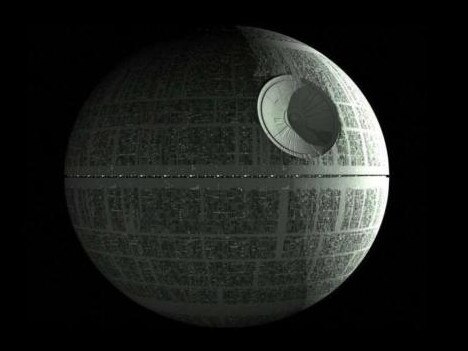University of Adelaide IPAS scientists reveal pulling power of tractor beams
DRAWING inspiration from Star Wars, University of Adelaide scientists have created a powerful tractor beam that packs millions of atoms into a single optic fibre for secure communication.
DRAWING inspiration from Star Wars, Adelaide scientists have created a powerful tractor beam that packs millions of atoms into a single optic fibre for secure communication.
University of Adelaide PhD candidate Ashby Hilton said the “interesting, exciting and complicated” project involved experiments in a purpose-built atomic chamber like a little piece of outer space on Earth.
“Although tractor beams are often green or blue in the movies, in this case the trap is made of invisible infra-red light,” he said.
“Every atom that enters the tractor beam is pulled into the fibre — there is no escape. And once sucked into the interior of the optical fibre the atoms can be held for long periods of time.”
In Episode IV: A New Hope, a tractor beam from the Death Star dragged the Millennium Falcon into the battlestation.

Here the atomic tractor beam pulls atoms into an optical fibre, where they can be controlled and manipulated.
Lead researcher Dr Philip Light built the atomic chamber at the Institute for Photonics and Advanced Sensing.
“The atoms in the centre of the chamber are cooled down to a millionth of a degree above absolute zero, so they are incredibly cold,” he said.
“We need them to be very, very cold in order to get a good fraction of them captured and loaded into the fibre.
“We put in millions at a time, so our method is a very efficient way of getting the atoms into the fibre.” It’s equivalent to space, which is slightly warmer, just a couple of degrees above absolute zero, which is minus 273.15C.

Dr Light is “interested in how things work”, particularly for secure communications using quantum technology.
“What we have developed will allow quantum memory, so you can operate secure communication over longer distances, Australia-wide for example,” he said.
“It’s about extending the distance over which you can guarantee the secure communication.”
The research is published in the international journal Physical Review Applied.

